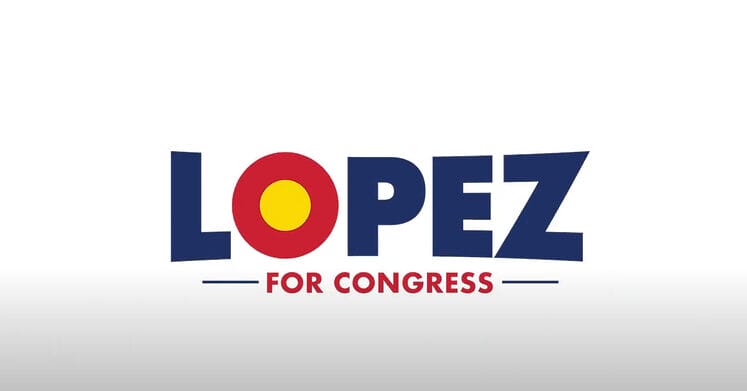
McCarthy’s ouster was inevitable from the moment he struck a deal that tacitly agreed to keep every member of the Republican caucus happy with every action McCarthy took. The rule that allowed a single member of the House to make a motion to vacate has now rippled into Speaker Johnson’s tenure and has meant that he has had to conduct his actions under constant threat from one division or another within the Republican caucus. This constant threat from unhappy members of the Republican caucus violates the precedent our founders left us with regards to the Speakership. The irony is that this also is an entirely predictable occurrence based upon the founder’s intense study of human nature, thus the certain safeguards situated within the Constitution. The current incessant threat to replace the Speaker of the House is placing the institution of the House of Representatives under severe duress and violates the principles of the most democratic of all the institutions of our federal government.
Time and time again in The Federalist Papers, Publius warns us about the dangers and perils of political leaders and why they should be unnecessary for a virtuous, self-reliant citizen. Unfortunately, the rise of progressivism has also elevated the political leader in the minds of politicians and citizens alike. One of the dangers of leaders is their incentive to kowtow to the ever-changing will of the people and to abandon principle to appease those responsible for keeping them in power. By eliminating the rule that allowed speakers to serve the House as a whole, the incentive for the subsequent Speakers of the House is to prostrate themselves to the vocal minority that might strip their power from them with any given change of a whim. In a less poetic way than the stoics would put it: people are fickle. The founders feared both the tyranny of the majority and the minority, and more specifically from either preventing the government from proceeding in its purpose of governing. This boastful and factious minority is now stripping the institution of the House of Representatives of its integrity and its purpose under specious arguments that the speaker cannot do any actions that they do not believe is proper, even if a majority of their own caucus believes them to be.
Catering to a loud and forceful minority has a muting effect on the role and responsibility of the speaker of the house and this has future ramifications on our posterity. If we believe that the speaker can only perform an action if he has consent from everyone in his caucus, then nothing will ever get done. Only ideologies such as socialism act out of the belief of uniformity of consent; the human behavior our government is founded upon rejects that supposition entirely and instead depends on differences of opinion. It depends on each individual representative being self-reliant of thought and opinion and not being swayed by the mob of Congress. Unfortunately, the progressive left fully believes in leaders and experts guiding their opinions and actions which is why they are much more likely to unite under a single voting bloc. We should not discourage dissent of ideas and debate, but stripping power just because somebody disagrees with you on a select number of political issues is no different than a dictator kicking out the members of his advisory council for merely having a different opinion. The speaker should be free to exert his self-assertion to push back on the loud minority and instead perform the functions the role requires.
What should the speaker of the house’s role be then? We can look to the crafting of our government and the initial precedents set for clues. The role of speaker of the house is noticeably absent from The Federalist Papers which a student of the founding should find unsurprising. The colonists were deeply troubled and terrified of too much power controlled by one person which is why initially, the Speaker’s role was that of parliamentarian and even a peace maker. In fact, under the first House rules, the Speaker did not engage in debates on the House floor and only spoke to conduct the business of the House. It was not until 1850 that the speaker got a clear right to even vote on all House matters. In other words, the Speaker served the institution, and the institution was that of the People. As progressivism took hold in America, the leadership and power of the Speaker grew into the role it is today, which is why so much time and attention is paid to who holds the role. Would we care as much about who the Speaker of the House was if they were confined to the role as originally constructed? Would the will of the House and we the People be better served by a parliamentarian as opposed to the incredibly divisive and agenda pushing Speakers that both parties have had in the past few decades? These are vital questions to be asking of our party to which I do not know all the answers but would daresay that the unremitting muting of an institutional figure in a republic continues to pay deference to the argument of the left that this institution is old and tired and can be treated as such.
There is great irony in the fact that the vocal and Trump supporting minority against Speaker Johnson fail to acknowledge that Trump has supported and endorsed the actions of Johnson. This support of Johnson is proper, not only from a principled perspective as detailed above, but from a pragmatic political perspective as well. The founders designed the checks and balances of power in the federal government to be inefficient, but not for one institution to be completely shut down by an upset minority. While the focus has been on the minority of Republicans, blame also sits at the feet of the House Democrats who have been more than willing and downright complicit in the political fallout of removing speaker after speaker. The democrats have also abdicated their responsibility of upholding the spirit of the institution for the political gain of confusion. Until we once again embrace the virtues extolled from the founding, our political institutions have little hope of surviving when one party is actively engaged in tearing them down while a factious minority in the other party is also willing to hand them the power to continue chiseling away. The optics and the fighting go beyond the intellectual and are just bad politics in an election year. We the People need to remind the Representatives in the House that it is our House and not the House of 1 or 2 disaffected Representatives. There will always be a place and a need for argument and disagreement within the house, but we need to disabuse ourselves of the notion that the Speaker should appease everyone and allow the Speaker the freedom to perform his duties in such a way that upholds the Constitutional Republic and follows the will of the People.









Responses